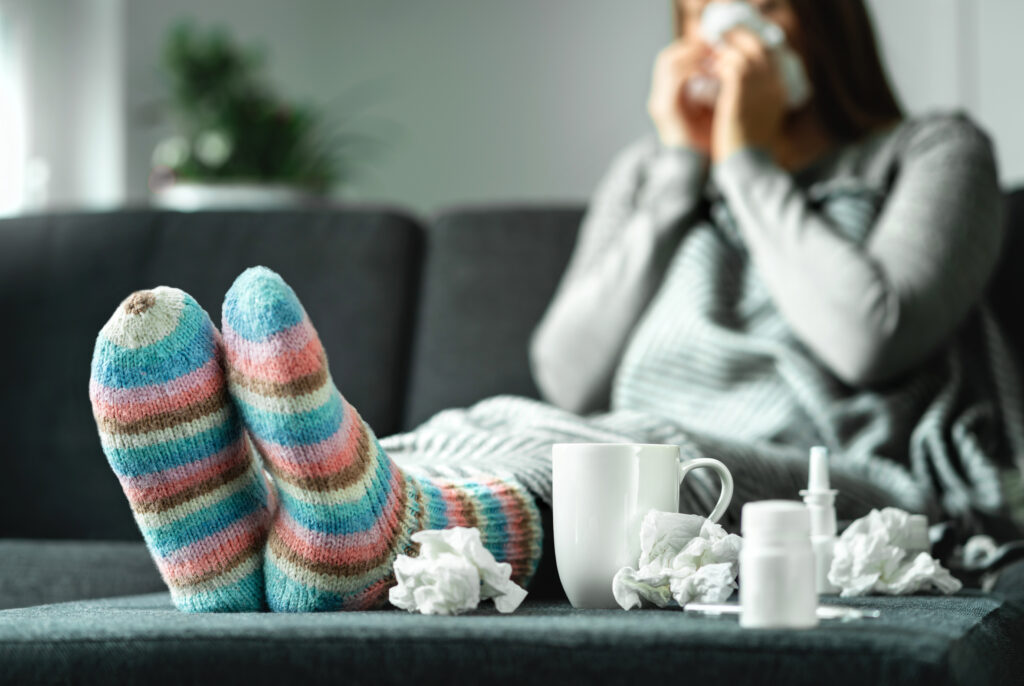In Australia, sexual health is discussed more openly than you might expect. Whether you’re already having sex or just considering it, it’s normal to have questions and concerns. Questions like: How do I talk about sex with a partner? Can I discuss my sexual health with a doctor? And many more.
As a member of the community, it’s good to understand what sexual health is and what others think about it. Sexual health means feeling good physically, mentally, and emotionally about your sexuality and relationships. Knowing about sexual health helps you stay healthy, prevent problems like sexually transmissible infections (STIs), have meaningful relationships, and enjoy safe, pleasurable experiences! But it’s also important to know that there are risks involved.
Having sexual contact (like anal, oral, or vaginal sex) with another person can lead to STIs. These are infections like syphilis and human immunodeficiency virus (HIV) that can affect our community. In 2022, there were 555 new HIV cases in Australia. About half of these were from sexual contact between men (49%), and 30% were from sexual contact between men and women. This tells us that HIV, like other STIs, can affect anyone no matter their gender or sexual orientation.
If you have had sexual contact without using protection, such as a condom, your body might have symptoms on the genitals, mouth or anus. These symptoms can include:
- Discharge (fluid from the vulva; changes in the amount, smell or colour can be a sign of an STI)
- Rash or redness
- Itchiness
- Pain
- Sores
It’s very common to have no symptoms at all. See a doctor or sexual health clinic as soon as possible if you have these symptoms or have had unprotected sex. They can help you get tested and treated if needed.
Talking about sex with a health professional
STIs are more common than you might think. Luckily, Australia has healthcare services that can treat almost all STIs effectively, just like other infections. While treatments for HIV and herpes won’t cure these STIs, they can ease symptoms and stop transmission to others. If left untreated, some STIs can cause serious health problems.
To find out if you have an STI, you need to get tested by a health professional, like a General Practitioner (GP) or a nurse. A full STI test usually involves giving a urine sample, a blood sample, and swabs. With your permission, the health professional may take a blood sample and swab or do a visual examination. If you prefer, you can ask to do the swab yourself. You can ask your health professional for these tests, you don’t need to wait for them to suggest it to you. We recommend you ask for all three types of tests. If you’re getting a blood test for a different reason, ask for an STI test too. For HIV testing, there are private and easy-to-use self-test kits available.
You can also ask your GP about getting vaccinated against certain STIs. Vaccines can lower the risk of getting some STIs. Vaccinations are available for hepatitis A, hepatitis B, and human papillomavirus (HPV), which can’t be cured. So, getting vaccinated is a good way to lower your risk.
Any GP can give you STI test, but it’s normal to feel uneasy about discussing your sexual history. If you have some knowledge of sexual health, you might feel more confident in talking about what kinds of sex you’ve had, any symptoms you’ve noticed, and how many sexual partners you’ve had. This helps them give you the best care possible. If you’re unsure how to start this conversation, there are helpful guides online by ReachOut.
You’re not alone if you think you would feel better talking to someone with a similar cultural identity. Or maybe, you feel more nervous talking to someone from your community, in case they tell someone you know. In Australia, health professionals are required by law to keep your information private and confidential. They won’t share anything you talk about with your education provider, immigration, or anyone else you know.
There are many sexual health clinics across Australia that offer services to people from all cultural backgrounds. They’re experienced in talking about sex and making people feel at ease, so it’s worth considering reaching out to them for support. You can find a list of sexual health clinics in each State and Territory here.
Talking about sex with a partner
Meeting new people in Australia can be very exciting, but it’s also normal to feel a bit nervous, especially when it comes sex! Some people are comfortable talking about sex with their partners, but not everyone feels the same. You might also find yourself enjoying sex with someone you don’t want to see again.
Whatever the case, make sure you and your sexual partners agree and give consent to any sexual activity. Consent is a serious issue in Australia, and that might be different to consent in your home country. There are laws about consent, and the age of when it’s legal to have sex is different depending on what part of the country you are in. Our guide to consent can be found here.
There are steps you can take to protect the sexual health of yourself, and other people.
- Using barrier methods like condoms and dental dams, along with lubricant, every time you have sex helps protect your skin from coming into contact with fluids that can spread STIs. Lubricant not only reduces the risk of cuts and tears during sex, which can increase the chance of getting an STI, but it can make sex more enjoyable. Just remember to check the expiry date before using them!
- Pre-exposure prophylaxis, or PrEP, is a medication that’s very effective in preventing HIV. You’ll need to talk to a health professional to see if PrEP is right for you. PrEP doesn’t prevent STIs or pregnancy, so it’s important to use it along with a condom or dental dam.
- Get tested regularly, so you can get treated and help prevent the spread to others.
- every 3-6 months if you are sexually active with more than one partner
- once a year if you are sexually active with only one partner
- as soon as you can if you have symptoms or if a sexual partner has an STI
-
Tested positive for an STI? Your doctor can help you tell any sexual partners you’ve had contact with. These conversation starters can also help you.
For more reliable information about sexual health, check out these links:
- STIs and testing information
- Sexual health and travel advice
- Sexual health resources in languages other than English
- PreP and other HIV prevention resources
This article was written by Karina Reeves, Coordinator of Health Promotion at WAAC. WAAC is a not-for-profit organisation based in Perth, Western Australia working to make a difference around HIV, STIs and sexual health.







